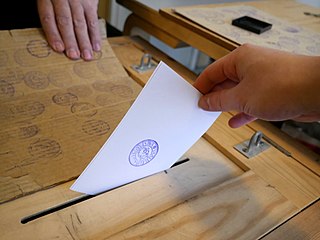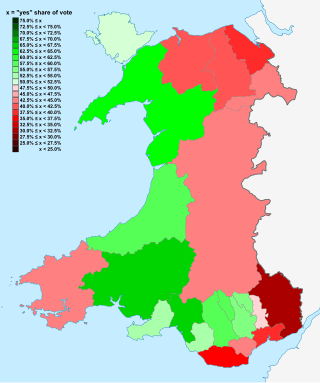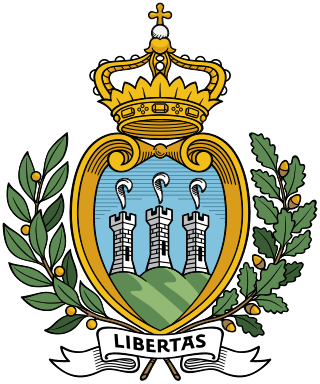National referendums are seldom used in Canada. The first two referendums in 1898 and 1942 saw voters in Quebec and the remainder of Canada take dramatically-opposing stands, and the third in 1992 saw most of the voters take a stand dramatically opposed to that of the politicians in power.

There are four types of elections in Finland. Each Finnish citizen at least 18 years of age has the right to vote in each of the elections, which decide the following: the president, the parliament, the MEPs, and the municipal and city councils.

Referendums in the United Kingdom are occasionally held at a national, regional or local level. Historically, national referendums are rare due to the long-standing principle of parliamentary sovereignty. There is no constitutional requirement to hold a national referendum for any purpose or on any issue; the UK Parliament is free to legislate through an Act of Parliament for a referendum to be held on any question at any time, but these cannot be constitutionally binding on either the Government or Parliament, although they usually have a persuasive political effect.

The Welsh devolution referendum of 1997 was a pre-legislative referendum held in Wales on 18 September 1997 over whether there was support for the creation of a National Assembly for Wales, and therefore a degree of self-government. The referendum was a Labour manifesto commitment and was held in their first term after the 1997 election under the provisions of the Referendums Act 1997. This was the second referendum held in Wales over the question of devolution: the first referendum was held in 1979 and was defeated by a large majority.

The Greater London Authority referendum of 1998 was a referendum held in Greater London on 7 May 1998, asking whether there was support for the creation of a Greater London Authority, composed of a directly elected Mayor of London and a London Assembly to scrutinise the Mayor's actions. Voter turnout was low, at just 34.1%. The referendum was held under the provisions of the Greater London Authority (Referendum) Act 1998.

The Good Friday Agreement referendum, 1998 was a referendum held in Northern Ireland over whether there was support for the Good Friday Agreement. The result was a majority (71.1%) in favour. A simultaneous referendum held in the Republic of Ireland produced an even larger majority (94.4%) in favour.
There are three types of elections in Denmark: elections to the national parliament, local elections, and elections to the European Parliament. Referendums may also be called to consult the Danish citizenry directly on an issue of national concern.

France is a unitary semi-presidential republic with a bicameral legislature. Public officials in the legislative and executive branches are either elected by the citizens or appointed by elected officials. Referendums may also be called to consult the French citizenry directly on a particular question, especially one which concerns amendment to the Constitution.

Latvia elects on the national level a legislature. The Saeima has 100 members, elected for a four-year term by proportional representation with a 5% threshold. An unmodified Sainte-Laguë method is used to allocate seats. The parliamentary elections are held on the first Saturday of October. Locally, Latvia elects municipal councils, consisting of 7 to 60 members, depending on the size of the municipality, also by proportional representation for a four-year term.

Azerbaijan elects on a national level a head of state—the president—and a legislature. The President of Azerbaijan is elected for a seven-year term by the people; before a constitutional referendum changed this in 2009, the position was limited to two terms. The National Assembly has 125 members. Before 2005, 100 members were elected for a five-year term in single-seat constituencies and 25 members were elected by proportional representation. Since 2005 all 125 members are elected in single-seat constituencies. Azerbaijan is a one party dominant state. Each of political parties in Azerbaijan has the same rights and opportunities to compete in elections as defined in by the Constitution and respective laws. On Sunday, 9 February 2020, the most recent parliamentary elections were held. On Wednesday, 11 April 2018, the most recent presidential election was held.

Bulgaria elects on the national level a head of state—the president—and a legislature. The president is elected for a five-year term directly by the people. The National Assembly has 240 members elected for a four-year term by proportional representation in multi-seat constituencies with a 4% threshold. Bulgaria has a multi-party system in which often no one party has a chance of gaining power alone and parties must work with each to form governments.
The Australian referendum of 12 December 1906 approved an amendment to the Australian constitution related to the terms of office of federal senators. Technically it was a vote on the Constitution Alteration Bill 1906, which after being approved in the referendum received the royal assent on 3 April 1907. The amendment moved the date of the beginning of the term of members of the Senate from 1 January to 1 July so that elections to the federal House of Representatives and the Senate could occur simultaneously.

Elections in Portugal are free, fair, and regularly held, in accordance with election law.
Elections in Luxembourg are held to determine the political composition of the representative institutions of the Grand Duchy of Luxembourg. Luxembourg is a liberal representative democracy, with universal suffrage guaranteed under the constitution. Elections are held regularly, and are considered to be fair and free.

Malta elects on a national level 6 MEPs representing Malta in the European Parliament, on a district level the legislature, On a local level the Local Councils and on a community level the Administrative Committees.

San Marino elects on the national level a legislature. The Grand and General Council has 60 members, elected for a five-year term by semi-proportional representation with national majority bonus.

The Mayor of Bristol is the head of government of Bristol and the chief executive of the Bristol City Council. The mayor is a directly elected politician who, along with the 70 members of Bristol City Council, is responsible for the strategic government of the city of Bristol, England. The role was created after a local referendum held on 3 May 2012, which followed the passage of the Localism Act 2011. 41,032 voted for an elected mayor and 35,880 voted against, with a turnout of 24%. An election for the new post was held on 15 November 2012.

The 2011 Kettering Borough Council election took place on 5 May 2011 to elect members of Kettering Borough Council in England. It was held on the same day as other local elections. The Conservative Party retained control of the council, which it had held since 2003.

This national electoral calendar for 2023 lists the national/federal elections held, and scheduled to be held, in 2023 in all sovereign states and their dependent territories. By-elections are excluded, though national referendums are included. Specific dates are given where these are known.















